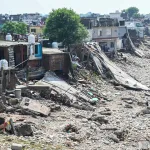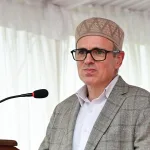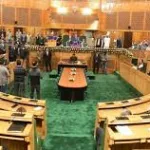Following Prime Minister’s Modi’s bear hug with President Putin during his two-day official visit in early July, several justifications have been proffered for the Indian leader’s decision visit to Moscow and the deep angst and trepidation it has triggered, especially in the West. Shrill statements such as the one from President Volodymyr Zelensky of Ukraine that Modi’s bear hug of Putin was a, “huge disappointment and a devastating blow to peace efforts to see the leader of the world’s largest democracy hug the world’s most bloody criminal in Moscow on such a day,” are only a dramatic manifestation of what the world gets wrong about New Delhi’s ties with Moscow. Three common justifications are offered for India’s strategically autonomous foreign policy; and Russia is the focal point of New Delhi’s exercise of strategic autonomy. The first is that Russia is an all-weather friend. The Russia-India relationship has stood the test of time. Countries such as the United States (US) view India more as a strategic tool against China than a country with an intrinsic set of interests and aspirations as a major power. In a nutshell, India has agency and is hedging its bets “…as an independent actor” by remaining engaged with Moscow. Secondly, the Russia-China relationship is not as closely tethered as critics in the West assume or even as some in India do, but more fragile because Moscow is unlikely to be a junior partner of the Peoples Republic of China (PRC). India’s ties with Russia help wean Moscow away from Beijing, giving the Russians more options to exercise in their external partnerships. Thirdly, Russia needs the Indian defence market to sell its military hardware, which gives India buyers leverage. After all, India was among the top four recipients of Russian arms between 2017-2021, which also include China, Algeria and Egypt. Each of the above justifications have some merit, but also represent weaknesses. Few have considered how India’s quest for strategic autonomy is an optical illusion. Let us consider the first claim that Russia is an all-weather friend. The joint statement issued by the two leaders makes no mention of the ongoing Sino-Indian boundary crisis, with Moscow remaining steadfastly neutral since its outbreak in May 2020. For Moscow to remain resolutely neutral reveals how wary Russia is of antagonising the Chinese. Nothing substantive accrued from the Putin-Modi summit, which did not address the US$ 57 billion trade deficit between India and Russia as a result of the latter’s massive hydrocarbon exports to India. There was no guarantee of Moscow’s pending supply of two S-400 Triumf systems and upgrades for a part of its Sukhoi-30 fighter fleet. This is not because Moscow does not want to supply; its industry just does not have sufficient spare capacity. Even worse, it may even side with China or at least privilege the PRC in the event that there is a conflict between New Delhi and Beijing in the near future. There is considerable reason to think why Moscow might not align itself with India, which brings us to the secondary claim that India’s engagement would ensure that Moscow’s “tight embrace” of Beijing would actually enable it (Russia) to “modulate” the PRC’s aggressive conduct towards India. This overestimates Russia’s capacity to use its good offices to moderate Chinese belligerent behaviour towards India. There are two very critical factors limiting Moscow’s influence over China. Russia’s trade with China exceeds whatever trade the Russians enjoys with India. The Russia-China trade balance in 2023 stood at US $240 billion, which was 26.3 percent higher than in 2022. Calculated from 2021, Chinese exports by surged by 64 percent until the end of 2023. Whereas India’s trade with Russia was US$ 65 billion in dollar-denominated trade in 2023. The trade balance between China and Russia is three and half times greater than the trade balance between Russia and India. If push comes to shove, for Moscow, the costs of alienating Beijing far outweigh the costs of Russia alienating India. Lest we forget, Russia enjoys a significant trade surplus vis-à-vis India accruing from the windfall it has made from oil sales to India in the last two years. For India Russian oil keeps prices low for the Indian consumer. Yet, there is mutual interest between India and the US in keeping Russian oil on the international market. As Eric Van Nostrand, the US Treasury Assistant Secretary for Economic Policy stated: “It is important for us to keep the oil supply [ from Russia] on the market. But what we want to do is to limit Putin’s profit from it”. The outcome of this policy is that the world’s seven most industrialised countries (or G-7) and Australia imposed a price cap of US$ 60 a barrel, but still agreed to India and other countries purchasing Russian oil at significantly discounted prices as long as they did not avail or use Western broking and insurance. Three hard realities explain why India’s ties with Russia are not the result of agency and autonomy, but a product of constraint and weakness. Firstly, India does not have the domestic defence industrial base that can optimally meet the needs of the Indian armed forces. This has been India’s bane since independence in 1947. The lack of domestic Military Industrial Complex (MIC) means that India is compelled to acquire capabilities from abroad to service its military requirements. As long as India remains dependent on defence imports, it will always be susceptible to pressures from external suppliers. Today, 70-80 percent of military hardware that the Indian armed services operate and deploy is foreign made and most of that imported hardware happens to be of Russian-origin.








